The advertisement of Greg LeMond’s 1989 Tour de France winner Bottecchia (in Italian). A beautiful and extraordinary bike. LeMond was racing for the AD Renting-W-Cup-Bottecchia team.
During the 1980s and at the beginning of the ’90s, the size of the front wheels of the time-trial bikes was 650c, unlike today’s bicycles.
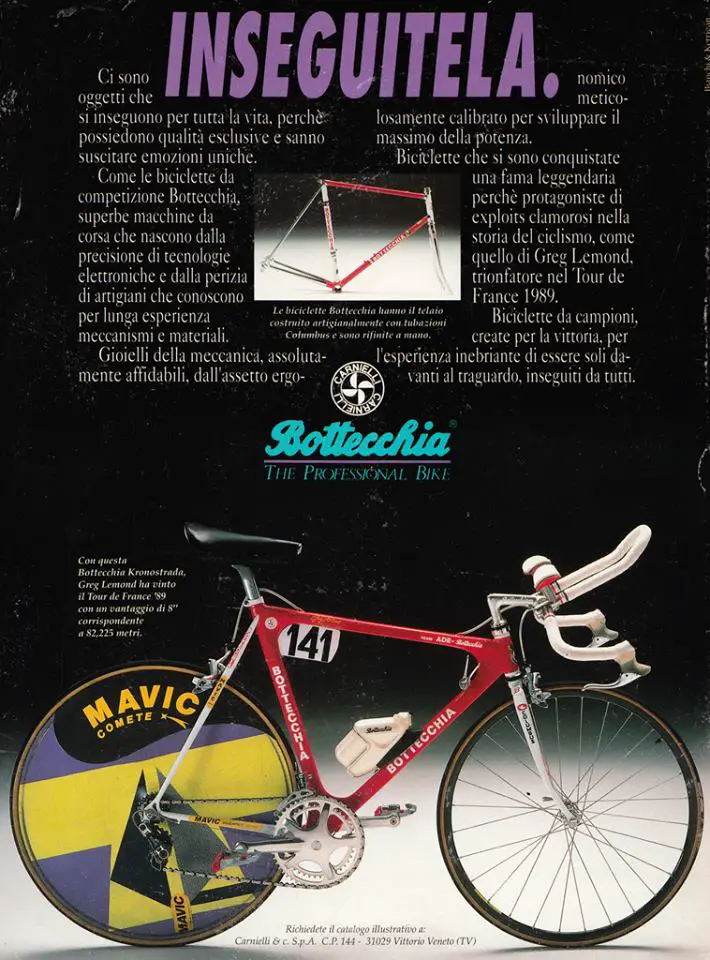
Bottecchia is a historical bicycle company that started as a small cyclery (bicycle building atelier) of Carnielli and was improved in 1924 by Ottavio Bottecchia, the first Italian winner of the Tour de France (he won twice, in1924 and 1925).
A new company with the new name “Bottecchia” was born after the death of Ottavio Bottecchia in 1926.
In 1940 the workforce of Bottecchia was 100 people and the company became an outstanding race firm with the historical name of Ottavio Bottecchia and under the management of the Carnielli family.
Greg LeMond’s 1989 Tour de France winner Bottecchia bike was equipped with Mavic wheels and Mavic groupset: it was the only victory for Mavic as a groupset supplier in the history of the Tour de France.
Did you notice the model of the rear wheel? It is Comete. It was so popular to name things “comet” in the late 80s, because of the last visit of the Halley’s Comet in 1986.
Another important feature of the bike, the most notable first use of the aerobars: In 1989, the Swiss bicycle manufacturer Scott introduced one of the most significant product innovations in the history of cycling – the clip-on aerodynamic handlebar.
The handlebar was strategically utilized by Greg LeMond, when he beat Laurent Fignon by nearly a minute in the 24.5km final time trial and won the Tour de France with the narrowest margin in its history: eight seconds. The elbow pads are placed near shoulder width, forearms elevated about 15 to 20 degrees, and hands in a fist position. Pioneered by aerodynamicist Boone Lennon, this was the birth of the modern aero position.

Related: Eighth seconds
LeMond’s 54.545 km/h average speed for the stage 21 time trial was the fastest ever ridden in Tour history. Since then only the 1994 prologue and David Zabriskie‘s 2005 time trial performance have been faster. The press immediately labeled LeMond’s come-from-behind triumph as, “the most astonishing victory in Tour de France history”.
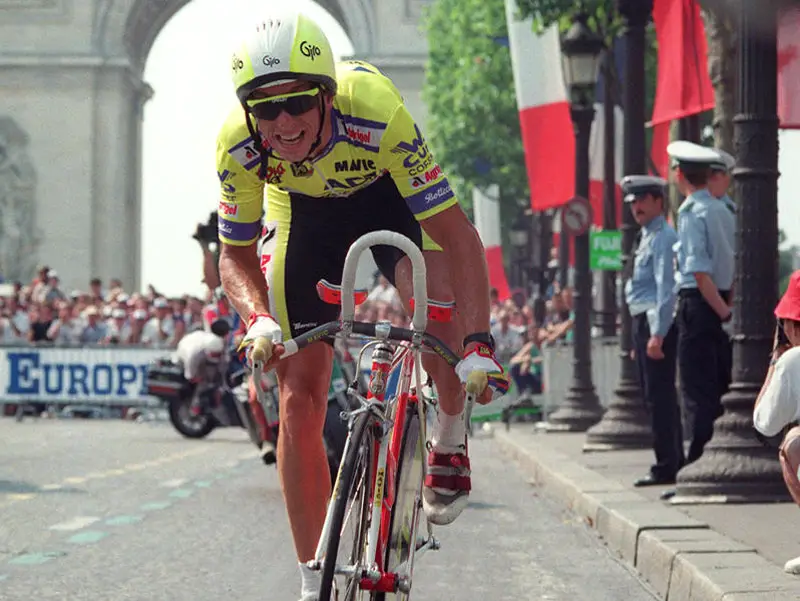
Sources
- 1989 Tour de France on Wikipedia
- What is a Satellite Rider? [Explained] - July 24, 2024
- Tour de France Winner Groupsets [Year by Year, from 1937 to 2024] - July 21, 2024
- Top 18 fastest Paris-Roubaix editions - April 7, 2024
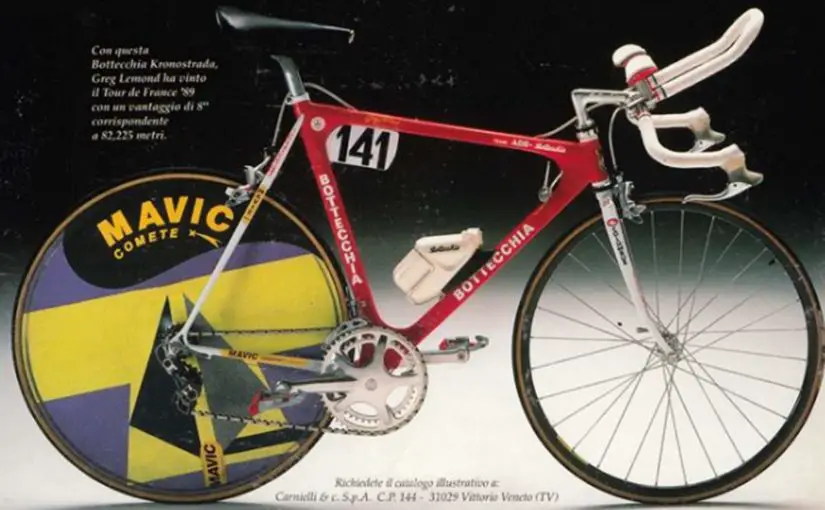
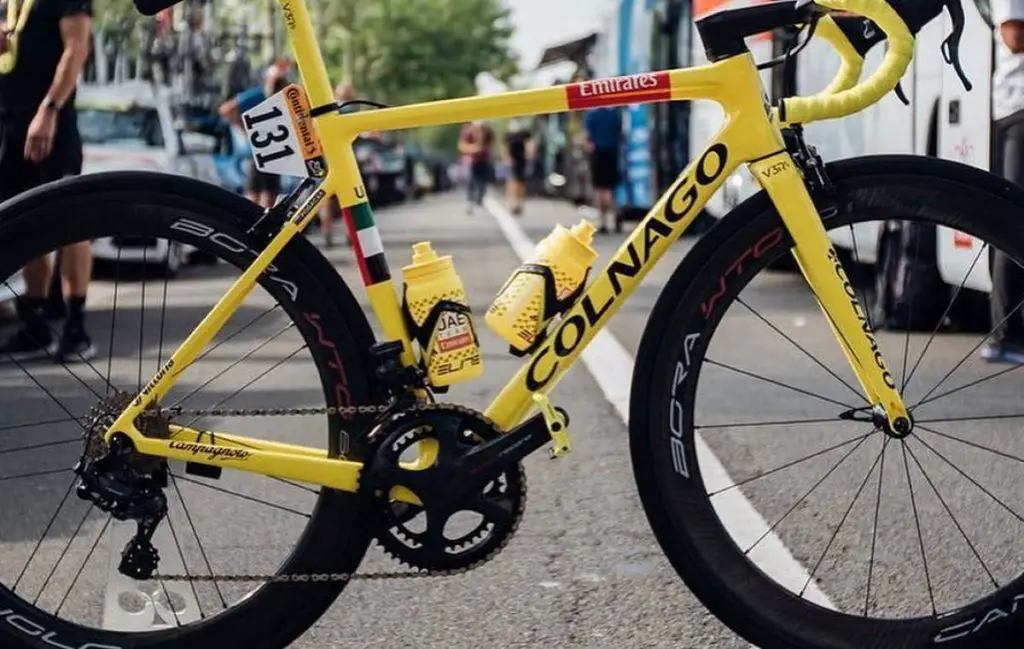
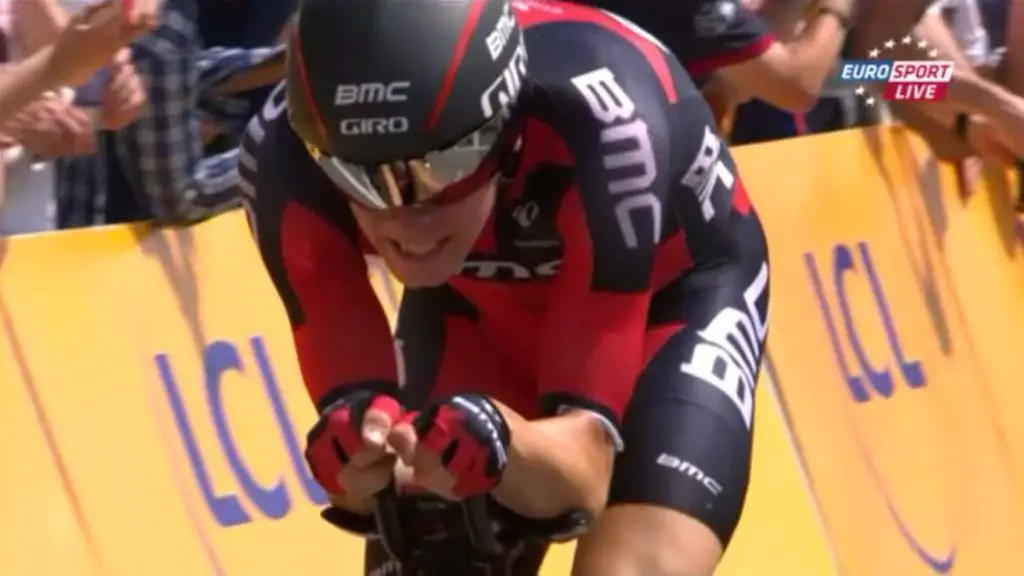

Where is LeMond’s 1989 TT bike now?
“Swiss bicycle manufacturer Scott introduced one of the most significant product innovations in the history of cycling – the clip-on aerodynamic handlebar.”
That is not correct. Scott bars were American.
https://www.scott-sports.com/us/en/page/history